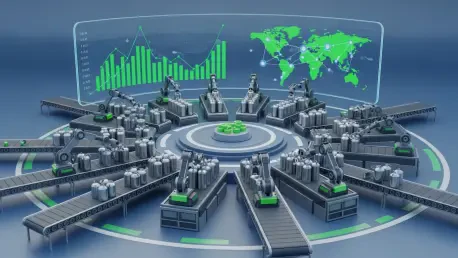
The global automotive industry is charging toward an electric future, yet the hum of internal combustion engines continues to dominate the world's roads, creating a complex challenge for decarbonization efforts. As policymakers push for a zero-emission horizon, a powerful counter-narrative is

For a nation built on meticulous planning and long-term vision, Singapore's near-complete dependence on a single, volatile energy source represents an uncomfortable and unsustainable reality. This deep-seated vulnerability has propelled the city-state to a critical juncture, where the

As the global maritime industry navigates the turbulent waters of decarbonization, a groundbreaking approach is emerging that sidesteps the colossal infrastructure challenges posed by hydrogen fuel. Onboard hydrogen generation represents a significant advancement, offering a pragmatic path to

A recent deluge of catastrophic proportions swept across southern Africa, leaving a trail of devastation that has reignited urgent conversations about the region's vulnerability in a rapidly changing climate. In a disaster that claimed over 100 lives and displaced more than 300,000 people across

In the urgent global effort to combat climate change, the focus on eliminating potent super pollutants has intensified, spotlighting the critical work of companies dedicated to this specialized and high-impact mission. Tradewater, a prominent global player in this field, has recently announced a

As global manufacturing floors hum with the activity of over four million industrial robots, a critical oversight in the push for sustainability has become increasingly apparent: the absence of a universal standard for measuring their energy consumption. While consumers can easily compare the
1 2 3 4 5 6 7 8 9 10 11 12 13 14 15 16 17 18 19 20 21 22 23 24 25 26 27 28 29 30 31 32 33